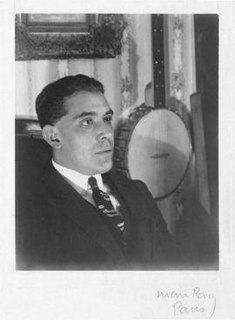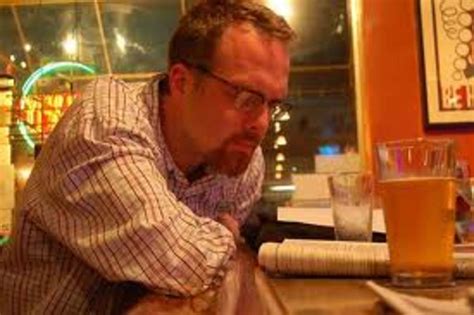A Quote by Robin Epstein
Having an answer is a comfort. It's when you start asking questions and those questions pull threads in the larger fabric, you're forced to wonder what you're left with. And for people of any age, it's scary to think the fabric of the universe - or the universe as you've always believed it existed - can just unwind, you know?
Related Quotes
Science is an intellectual journey, and to me, it's not the destination, it's the journeyto get there. It's a way of thinking and it's an intellectual curiosity, a desire to know how the world works, and to know what the fundamental principles of the world are, and to know our place in it. I think once we stop asking questions like "what is the age of the universe," or "how are the instructions of DNA carried out on a microscopic level," once we stop asking questions like that, we're dead.
Science is very good at answering the 'how' questions. 'How did the universe evolve to the form that we see?' But it is woefully inadequate in addressing the 'why' questions. 'Why is there a universe at all?' These are the meaning questions, which many people think religion is particularly good at dealing with.
Painting for me is like a fabric, all of a piece and uniform, with one set of threads as the representational, esthetic element, and the cross-threads as the technical, architectural, or abstract element. These threads are interdependent and complementary, and if one set is lacking the fabric does not exist. A picture with no representational purpose is to my mind always an incomplete technical exercise, for the only purpose of any picture is to achieve representation.
I did answer all of the questions put to me today, ... Nothing in my testimony in any way contradicted the strong denials that the president has made to these allegations, and since I have been asked to return and answer some additional questions, I think that it's best that I not answer any questions out here and reserve that to the grand jury.
I gravitate toward the larger worldview questions such as, Why are we here? What are we supposed to be doing? What does it mean to know another person? To love someone? Of course, those questions are sort of in the background as I'm playing with language in the foreground, but those are the informing questions.
If you don't put the spiritual and religious dimension into our political conversation, you won't be asking the really big and important question. If you don't bring in values and religion, you'll be asking superficial questions. What is life all about? What is our relationship to God? These are the important questions. What is our obligation to one another and community? If we don't ask those questions, the residual questions that we're asking aren't as interesting.
Science will always raise philosophical questions like, is any scientific theory or model correct? How do we know? Are unobserved things real? etc. and it seems to me of great importance that these questions are not just left to scientists, but that there are thinkers who make it their business to think as clearly and slowly about these questions as it is possible to. Great scientists do not always make the best philosophers.
The decisions we make, individually and personally, become the fabric of our lives. That fabric will be beautiful or ugly according to the threads of which it is woven. I wish to say particularly to the young men who are here that you cannot indulge in any unbecoming behavior without injury to the beauty of the fabric of your lives. Immoral acts of any kind will introduce an ugly thread. Dishonesty of any kind will create a blemish. Foul and profane language will rob the pattern of its beauty.







































